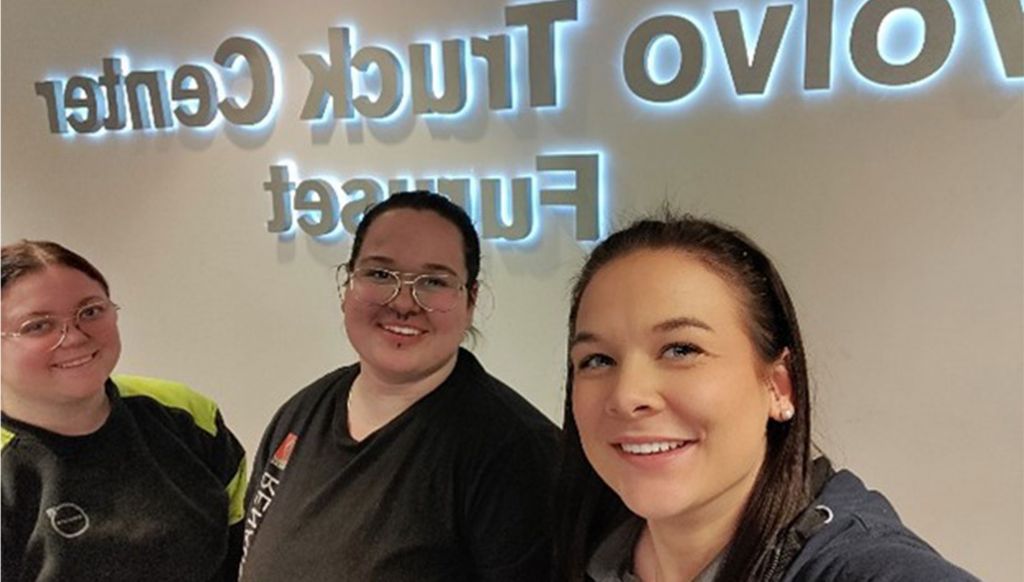Breaking Stereotypes


…especially in historic competitions such as Volvo International Service Training Award, VISTA. This year we’ve seen many teams, enter the VISTA World Championship competition, breaking barriers and proving that talent is universal, regardless of gender.
One of them is the Norwegian team, Boss Ladies, having three skilful technicians: Evita Tornsberg, Laura Selliseth and Thea Sneis. Not only they are one of the seven all-women teams taking part this year but is it also their first participation in VISTA.
We took some time to find out a bit more about their story.
What led you all to a career as a technician?
EVITA:
I grew up in a car family and have always been interested in big, old cars with big engines. So, I became a truck driver when I was 19 years old and drove for 3 years before I started in the reception at the workshop and then progressed to being a technician.
LAURA:
My interest in cars started when I was 15. I initially wanted to become a car mechanic. But the school wanted me to try truck driving to get more skills, so I tried and found I liked trucks, and the rest is history!
THEA:
I grew up in a family with truck drivers and have always been interested in fixing things and taking them apart to see how they work. I have also been interested in cars for a while, so it just came naturally to me.
What made you all want to sign up for VISTA for the first time?
EVITA:
None of us have attended VISTA before, so when our colleagues challenged us to take part this year, we had to say yes!
What unique strengths do you feel an all-women team brings to the competition and how can you leverage this?
EVITA:
We don’t feel like being a team with just women is better than an all-men team. We have the same advantages and disadvantages, and we are just as skilled! We’re excited to show our advantages as the competitions progresses and what we can learn from other teams.
What measures do you think are important to create an all-inclusive environment, where teams regardless of gender, feel valued and respected?
EVITA:
It’s important to keep talking about how teams with different people, perspectives, and backgrounds are needed to make a strong team. Everyone can learn something no matter their gender, age, or experience.